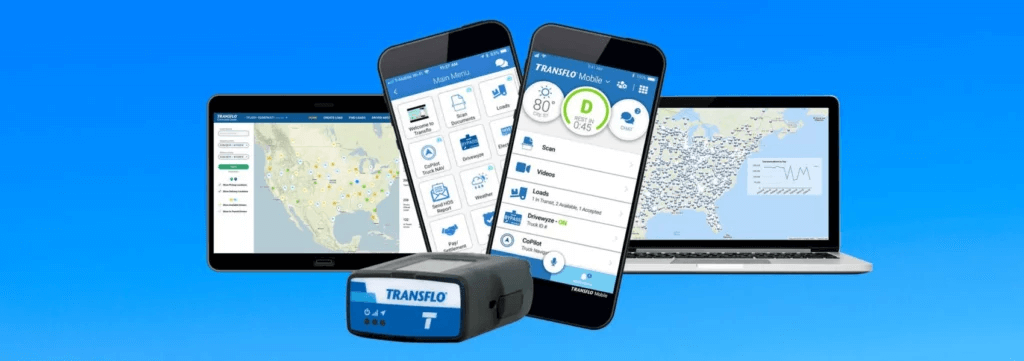
4 Ways to Reduce Costs by Using the Right ELD For Your Fleet
Electronic logging devices (ELDs) are required for most commercial drivers in the US, but did you know that choosing the right ELD can also help reduce costs for your freight business?
Freight organizations must keep costs low and efficiency high. One way to achieve both goals is by choosing the appropriate electronic logging device (ELD) for your business. In case you’re unfamiliar, ELDs are devices commercial drivers in the U.S. must use to track their driving hours and ensure compliance with hours-of-service regulations. But beyond meeting this requirement, an ELD can also help cut costs for your organization in several ways. Here are four ways an ELD can save you money.
1. Improved Fuel Efficiency
An ELD can track a variety of data points related to your vehicles, including fuel usage. By analyzing this data, you can identify inefficiencies in your routes and make changes to reduce fuel consumption and save money. In addition to identifying inefficiencies, an ELD can also help you monitor your fuel usage over time and track your progress in improving efficiency. This can be especially useful for identifying patterns or trends that may be contributing to higher fuel costs.
2. Reduced Paperwork and Administrative Costs
Traditionally, commercial drivers have tracked their driving hours using paper logs. This process can be time-consuming and error-prone, as drivers must manually record their time and fleet managers must review and verify the logs.
Here’s how an ELD can streamline this process.
- Eliminating paper logs: ELDs replace manual paper logs for tracking driving hours, reducing paperwork and the risk of errors.
- Time savings: You save time by automating tracking, removing the need for drivers to manually record their hours and fleet managers to review and verify logs.
- Effortless tracking: ELDs automatically start and stop tracking driving time when the driver begins and ends their journey or takes breaks, simplifying the tracking process.
- Data accessibility: Provide easy access to driver hours of service data, facilitating data analysis to identify operational trends or bottlenecks affecting efficiency.
- Operational efficiency: By analyzing ELD data, you can identify issues like long wait times at loading/unloading points, enabling you to make operational improvements and enhance overall efficiency.
- Cost reduction: ELDs reduce costs by saving time, eliminating administrative tasks and streamlining the tracking and analysis of driving hours.
Using an ELD to reduce paperwork and administrative costs can significantly impact your bottom line. By automating the tracking of driving hours and making it easier to access and analyze data, you can save time and reduce costs, freeing up resources to focus on other business areas.
3. Enhanced Safety
With an ELD, you can more easily track your drivers’ productivity and optimize their routes for maximum efficiency. You can accomplish more, saving money on labor and other resources.
ELD data on driving hours, breaks and other activities can help you spot opportunities for improvement. For example, you may be able to identify places where drivers spend too much time waiting for a load or where they could be more efficient by taking a different route. Get more done in less time by optimizing routes and increasing productivity.
4. Increased Productivity
With an ELD, you can more easily track your drivers’ productivity and optimize their routes for maximum efficiency. You can accomplish more, saving money on labor and other resources.
ELD data on driving hours, breaks and other activities can help you spot opportunities for improvement. For example, you may be able to identify places where drivers spend too much time waiting for a load or where they could be more efficient by taking a different route. This means your fleet can get more done in less time by optimizing routes and increasing productivity.
For more information on Transflo’s industry-leading ELD and Telematic solutions for fleets, please reach out to us today.



